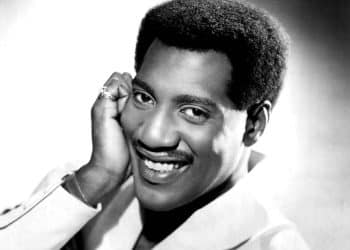Is Justin Bieber on the outs with the "mainstream" because he has been "hanging out with too many Black people"?
According to Chris Brown, the teen that was once adored by thousands of girls (and their parents) for his friendly music and seeming squeaky clean image is now struggling because of "unconscious racism."
"Justin’s not a bad kid, I’ve been around him. But if he hangs with too many Black people, “oh he’s hanging with the ni**as, so we’re going to let you go.” That’s strictly what it is. It’s unconscious racism. C’mon, y’all know this s**t is bulls**t. So like at the end of the day, people f**k with people and Justin does great music. He’s still pop, but he hangs with the Black people," Brown told JET magazine in previously unreleased quotes from a September 2013 interview.
As seen over the last year, Justin Bieber has transitioned from seeming squeaky clean teen to a "troubled" artist that scuffles with press, urinates in buckets at restaurants and battles with his neighbors. According to Chris Brown, people are now canceling him out because they can't or simply don't want to understand who Bieber is.
"I can identify with what he’s going through. People don’t understand certain people, so if they don’t understand you, they automatically hate you. They cancel you out," Brown told JET. "I’m speaking out now because I really don’t care anymore."
You may have heard the recent comments made by Chris Brown about Justin Bieber. The controversial statement has sparked a heated debate about racism and social circles.
According to Brown, Bieber ‘hangs with too many black people,’which has raised concerns about the consequences of limiting social circles based on race.
These comments have brought up important questions about what it means to be racially inclusive in your social circle. Is it wrong for someone to have friends from different backgrounds? Should we only hang out with people who look like us?
These are just some of the questions being asked as people try to make sense of Brown’s words and their implications for society as a whole. In this article, we will explore these issues and more, taking a closer look at the impact that limiting our social circles can have on ourselves and others.
Racism and Social Circles: The Debate Continues
The debate on racism and social circles heats up as Chris Brown claims Justin Bieber ‘hangs with too many black people.’
The statement has sparked outrage across social media, with many accusing Brown of perpetuating harmful stereotypes about race. But the issue at hand raises important questions about the role of race in our social lives.
On one hand, it’s important to acknowledge that our social circles can have a significant impact on our beliefs and attitudes towards different groups of people. When we surround ourselves with people who share similar backgrounds and experiences, we may be less likely to challenge our assumptions and biases.
This is why diversity in our friendships is so crucial – it exposes us to different perspectives and helps us grow as individuals. However, it’s also important to recognize that accusations like Brown’s can be problematic because they reinforce stereotypes about racial identity.
Suggesting that someone ‘hangs with too many black people’ implies that there is something inherently negative or threatening about blackness – when in reality, this couldn’t be further from the truth. Ultimately, the goal should be to create inclusive communities where everyone feels valued regardless of their background or identity.
Consequences of Limiting Social Circles Based on Race
Limiting one’s social circles based on race can lead to missed opportunities for personal growth and understanding. When you only associate with people who look like you, talk like you, and come from the same background as you, you may miss out on learning about different cultures and experiences.
By opening yourself up to a diverse group of friends, you can gain a better perspective on the world around you. Additionally, limiting your social circles based on race can perpetuate harmful stereotypes and prejudice. When someone only surrounds themselves with people from their own racial group, they may start to believe that other races are inferior or less worthy of respect.
This kind of thinking is not only harmful to individuals but also contributes to systemic racism in society. Limiting your social circles based on race can also limit your career and educational opportunities. In today’s globalized world, it’s important to be able to work effectively with people from all walks of life.
By broadening your social circle, you increase your chances of meeting people who can help connect you with new job opportunities or introduce you to new ideas that could help advance your career or education.
Conclusion
So there you have it, the ongoing debate about racism and social circles continues. Chris Brown’s comment about Justin Bieber ‘hanging with too many black people’ highlights a larger issue of limiting social circles based on race.
However, this kind of thinking can have serious consequences, not only for personal relationships but also for society as a whole. When we limit ourselves to only interacting with people who look like us or share our background, we miss out on opportunities to learn from others and expand our perspective.
It’s important to challenge ourselves to be open-minded and inclusive in our social interactions. After all, diversity is what makes our world so beautiful and interesting.






